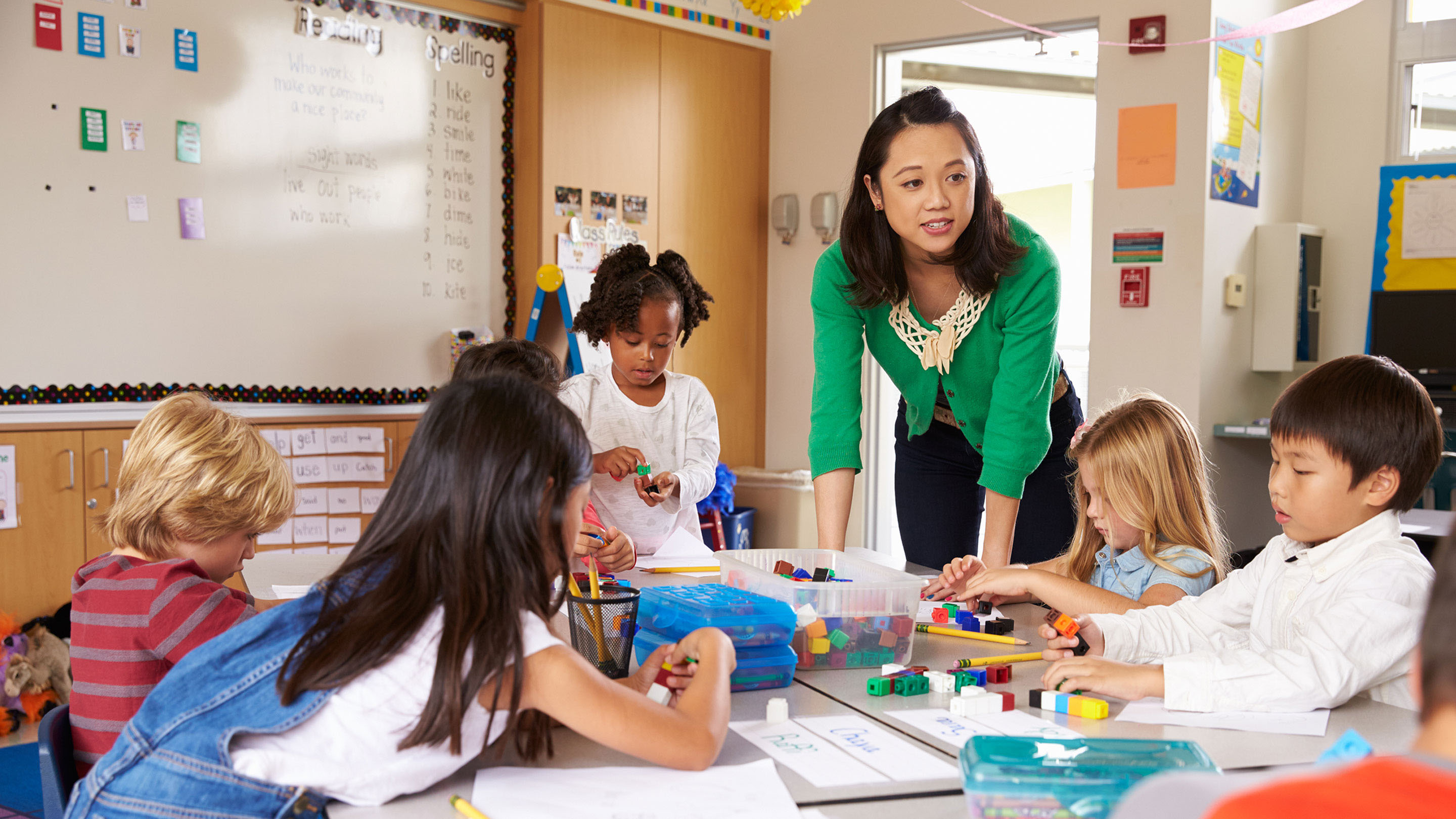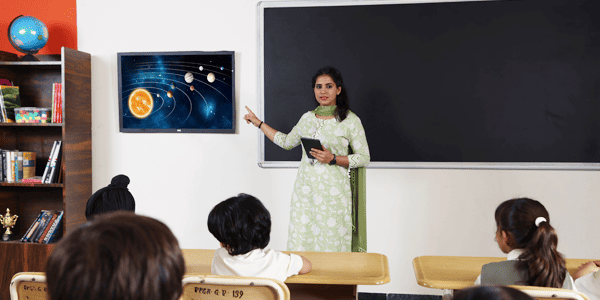Tailored Primary Science Tuition Singapore for Your Child’s Success
Tailored Primary Science Tuition Singapore for Your Child’s Success
Blog Article
Discovering the Various Mentor Methods in Main Science Education Today
The landscape of primary scientific research education is developing, with various teaching strategies getting prominence in modern class. Inquiry-based learning, hands-on experiments, and the integration of innovation are redefining exactly how educators involve young minds. Furthermore, collective methods and distinguished direction are being employed to satisfy the diverse demands of trainees, enhancing both engagement and understanding. As we analyze these techniques, questions arise concerning their effectiveness and the implications for future educational techniques. What might these changes in strategy mean for the following generation of learners?
Inquiry-Based Understanding
Inquiry-Based Discovering (IBL) is an instructional strategy that urges trainees to explore clinical ideas via wondering about, investigation, and hands-on testing. This method highlights the role of students as active individuals in their discovering, advertising important reasoning and analytical skills. By involving with real-world concerns, students come to be interested and motivated, which boosts their understanding of scientific principles.
In IBL, educators function as facilitators, directing trainees as they navigate their questions as opposed to supplying info straight. This student-centered strategy permits differentiation, suiting various learning styles and paces. Trainees create abilities in developing theories, making experiments, and analyzing information, which are vital for scientific proficiency.
In addition, IBL cultivates collaboration among trainees, encouraging them to share searchings for and ideas. This collective query advertises social skills and a feeling of area within the classroom. The procedure of inquiry urges strength, as pupils learn to embrace failure as a tipping stone towards understanding.
Hands-On Experiments
Hands-on experiments are a crucial component of efficient science education and learning, complementing the concepts of inquiry-based discovering. These experiments enable trainees to involve straight with clinical concepts, promoting a much deeper understanding through experiential discovering. By controling products and observing end results, young learners can grasp abstract concepts in substantial methods.
Such activities advertise vital reasoning and problem-solving skills, as pupils hypothesize end results, conduct experiments, and analyze outcomes. This process urges them to ask inquiries, fine-tune their understanding, and develop a clinical way of thinking. Hands-on experiments can be tailored to varied discovering designs, guaranteeing that all students have the opportunity to engage meaningfully with the web content.
Additionally, hands-on experiments often urge cooperation amongst peers, advertising teamwork and interaction skills. Functioning in teams allows trainees to share concepts, discuss searchings for, and gain from one another, which boosts their general academic experience.
Including hands-on experiments into the key scientific research curriculum not just enriches the finding out atmosphere yet likewise cultivates a long-lasting passion in scientific research. By actively taking part in their education and learning, trainees are more probable to create an enthusiasm for scientific questions that extends beyond the class.

Modern Technology Integration
Incorporating innovation into key scientific research education and learning has actually ended up being increasingly important in fostering student engagement and boosting finding out outcomes. The usage of digital devices, such as interactive simulations, digital laboratories, and academic software program, offers trainees with opportunities to discover scientific principles in innovative methods. These sources promote a much deeper understanding of complicated subjects by permitting learners to imagine and control variables that would certainly be impractical in a conventional class setting.
Furthermore, technology combination encourages individualized finding out experiences. Students can proceed at their own speed, reviewing tough concepts via multimedia sources, which provide to various discovering styles. This flexibility not only sustains individual development but additionally grows a feeling of freedom in learners.
Furthermore, innovation serves as a bridge to real-world company website science, attaching trainees with present research and professional payments. Access to online data sources and clinical journals expands pupils' point of views on scientific questions and promotes essential believing skills.
Collaborative Knowing
Collaborative discovering plays an essential role in primary science education and learning by fostering synergy and communication skills among pupils. This strategy motivates students to collaborate, share knowledge, and participate in analytic, which improves their understanding of scientific principles. By participating in team tasks, students find out to articulate their concepts, listen to varied viewpoints, and discuss services, every one of which are vital abilities in both scholastic and real-world contexts.

Research study indicates that collective discovering can result in boosted motivation and engagement in science subjects, as trainees find satisfaction in shared experiences (primary science tuition Singapore). In addition, this method prepares students for future collaborative ventures, furnishing them with the skills necessary for effective synergy in college and expert settings. Ultimately, accepting collaborative learning in key science education and learning can considerably enhance the learning experience and promote a much deeper understanding of scientific questions
Differentiated Guideline

Set apart instruction can materialize in various means, such as differing the web content, processes, or products of learning. Educators may use tiered jobs that offer differing degrees of complexity, allowing students to function at their particular readiness degrees. In addition, adaptable organizing strategies can assist in collaboration amongst trainees with various abilities, fostering peer understanding.
Evaluation plays an important role in this method, as it notifies direction and aids teachers recognize each student's one-of-a-kind requirements. Formative assessments, such as tests and observations, can assist educators in adjusting their strategies to boost finding out end results. primary science tuition Singapore. Inevitably, by implementing separated guideline in primary scientific research education and learning, teachers can grow a much more fair and reliable discovering atmosphere, empowering all students to reach their complete possibility in understanding clinical sensations
Final Thought
In recap, the varied training approaches in main scientific research hop over to here education, including inquiry-based understanding, hands-on experiments, innovation assimilation, collective discovering, and distinguished guideline, jointly contribute to an extra effective learning environment. These techniques promote important thinking, analytical skills, and a much deeper comprehension of scientific concepts. By executing these approaches, teachers can produce engaging and encouraging class that deal with the diverse demands of students, ultimately fostering a long-lasting rate of interest in science and enhancing academic success.
Inquiry-Based Discovering (IBL) is a pedagogical method that urges students to discover clinical principles with wondering about, investigation, and hands-on trial and error.Joint understanding plays a vital function in main science education by cultivating synergy and interaction skills among pupils.Research study suggests that collective understanding can lead to increased motivation and involvement in scientific research topics, as trainees locate satisfaction in shared experiences.In fostering a comprehensive knowing environment, differentiated instruction emerges as an essential method to accommodate the diverse requirements and abilities of pupils in key scientific research education and learning. Inevitably, by implementing set apart guideline in key scientific research education, instructors can grow an extra efficient and fair discovering atmosphere, empowering all students to reach their full possibility in comprehending clinical phenomena.
Report this page